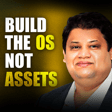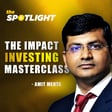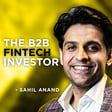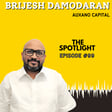
Your Money Deserves More Than 3% - Bond Investing Explained | Suresh Darak (Bondbazaar)
What if your idle savings could earn 8–13% returns instead of just 3–4% sitting in your bank account?
In this episode of the Spotlight, host Akshay Datt speaks with Suresh Darak, founder of Bondbazaar, a digital bond investment platform that’s making the fixed-income space accessible to retail investors. With 20+ years in financial services and 13 years focused specifically on bonds, Suresh offers a masterclass in bond investing, debt capital markets, and personal finance strategies for modern India.
Key Takeaways:
👉India’s corporate bond market stands at ₹50 lakh crore, growing at 20% CAG
👉Bonds offer predictable returns, lower volatility, and daily interest accrual
👉Bondbazaar is building retail-friendly infrastructure for investing in listed and privately placed bonds
👉SEBI regulations and credit ratings ensure transparency and investor safety
👉Robo-advisory for bonds is set to make smart investing even more accessible
#BondMarket #Fintech #StartupStory #IndianStartups #FounderThesis #FixedIncome #RetailInvesting #UnfundedStartup #DebtMarkets #FinancialLiteracy #InvestmentStrategy #Entrepreneurship #BootstrappedStartup #IndianFintech #BondInvesting #WealthCreation #financialinclusion
Disclaimer: The views expressed are those of the speaker, not necessarily the channel



















